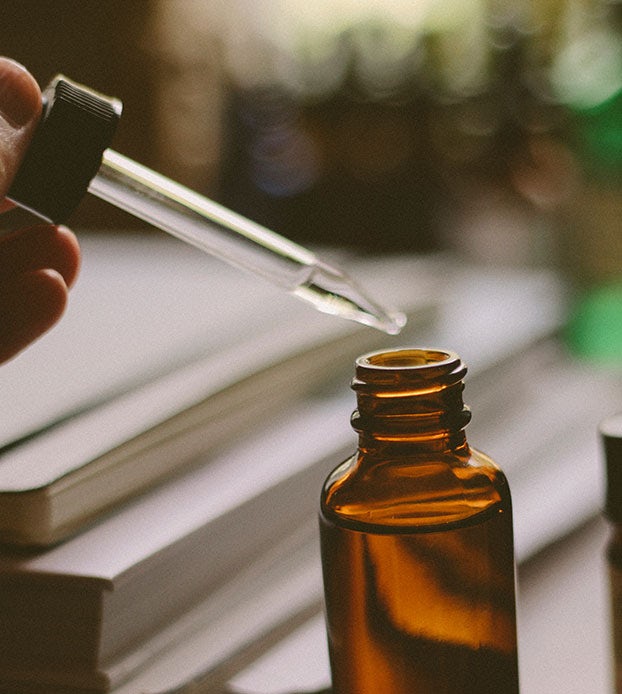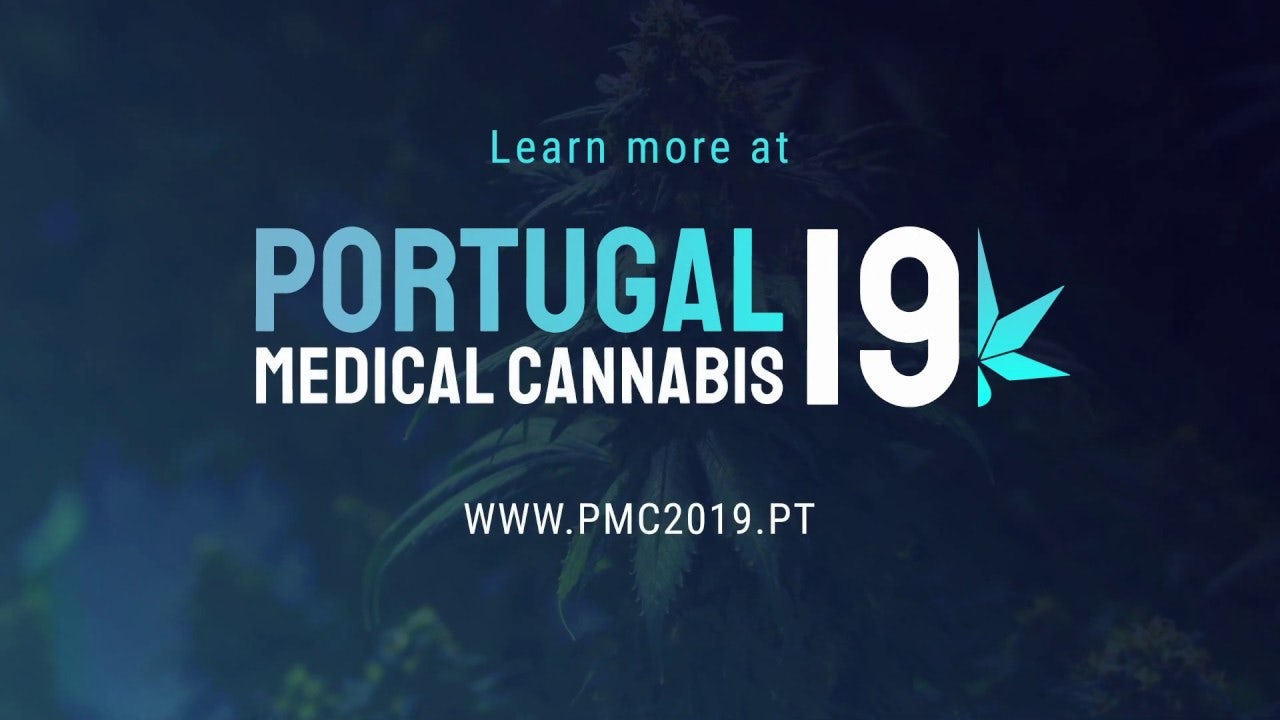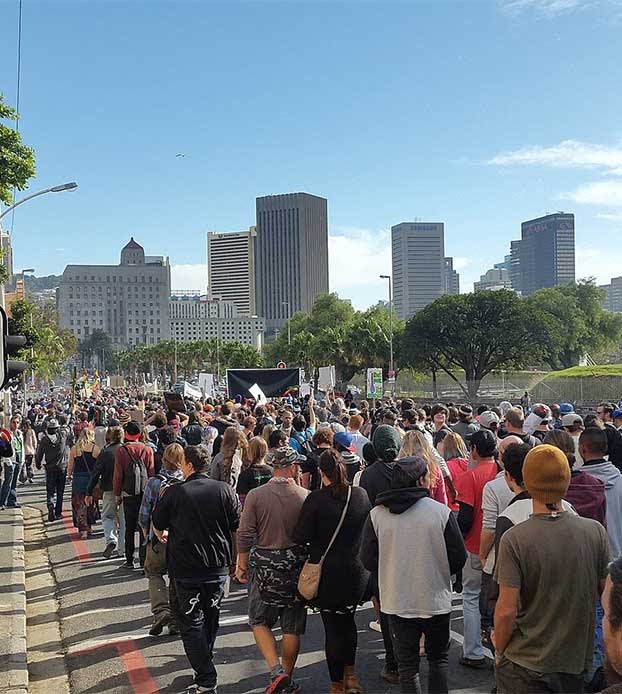By the time you finish this sentence, a new CBD product may have been released.
But while research has shown that CBD has potential as a treatment for pain, anxiety, and other ailments, and even though it has been approved to treat certain types of epilepsy, it has yet to attain the status of more “traditional” medications. This is partly because of the patchwork of legislation regulating cannabis based medicines in the US and very limited research. The result is a system where many healthcare professionals are undereducated about cannabis based therapies, and can often leave patients left to figure it out on their own.
When people are unsure about a medication, they usually turn to pharmacists for guidance. But do pharmacists have the know-how they need to guide patients and consumers about CBD?
What do pharmacists know about CBD?
Research carried out in recent years has repeatedly shown that pharmacists have some glaring knowledge gaps when it comes to CBD and cannabis-based medicines in general.
A recent survey of over 100 pharmacists in California, published in “Research in Social and Administrative Pharmacy,” gauged their “knowledge, experience, and confidence of non-prescription CBD products.” The study found that even in California, where CBD and THC-based products are readily available without a prescription, 78.5% of the pharmacists surveyed were unable to answer at least 80% of the non-prescription CBD knowledge-based questions. This is problematic considering that more than half said they have received patient questions and 20% recommended non-prescription CBD products in the last 12 months.
“Despite patients commonly asking about non-prescription CBD products, the majority of pharmacists lack clinical knowledge and confidence on the topic. There is a need to provide formal training and educational resources on non-prescription CBD products,” the study found.
These findings echo those of a 2018 report in the “American Journal of Pharmaceutical Education,” which found that out of 238 pharmacy students who completed a survey on medical cannabis treatment “responses to all domains and their corresponding confidence levels displayed a lack in confidence.”
The report found that overall, pharmacy students were unable to identify common qualifying conditions for medical marijuana, with the exception of epilepsy (49%) and cancer (33%).
“This lack of knowledge and confidence is an important finding as the likelihood of a graduate practicing in one of the 45 states with medical cannabis programs is quite high,” the researchers wrote, adding that when working with patients or providers, pharmacy students “will need to demonstrate at least a basic knowledge of the subject and how medical cannabis use may impact patient care.”
In 2015, the “American Journal of Pharmaceutical Education” published a report that found that out of 311 pharmacy students, more than half said they “did not feel comfortable answering consumers’ questions regarding efficacy, safety, or drug interactions,” relating to medical marijuana.
The researchers found that the students in the study “had received little to no education regarding the use of medical marijuana in the pharmacy curriculum,” and that 90% of them said they should receive some formal education on the topic.
“The low confidence and comfort levels pharmacy students expressed about their ability to answer patients’ marijuana questions may reflect this lack of formal education,” they wrote in the report.
They concluded that as medical marijuana legalization spreads, “pharmacy students also need to understand the lack of medical marijuana standardization with respect to potency and methods of consumption, which make it difficult to give advice on dosage and efficacy.”
➤ Read also: Should ‘Budtenders’ Be Standing In As Pharmacists?
Should pharmacists be involved in cannabis?
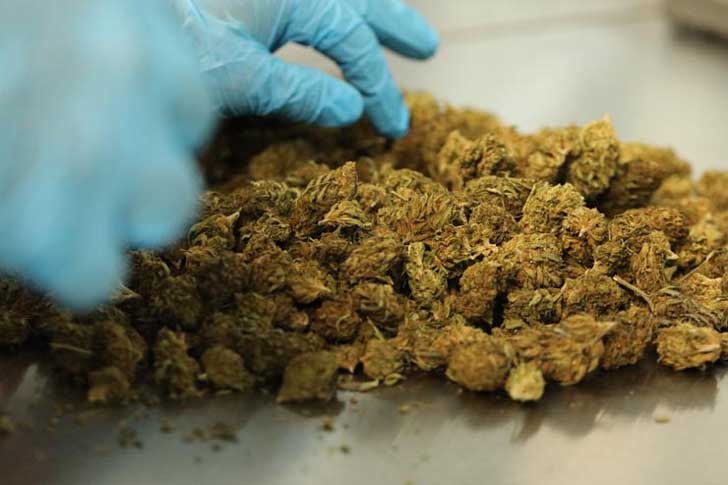
A paper published in the Canadian Pharmacists Journal in early 2019 stated that “the proposal that pharmacists oversee patients’ cannabis use has much to recommend it. Pharmacists can help avoid potentially harmful interactions between cannabis and prescription drugs.” It also states that “people currently on sedative psychotropic agents, opioids, and benzodiazepines should be advised on potential drug interactions.”
That said, the researchers also stated that they do not believe pharmacists should be in charge of dispensing medical cannabis, in that “many users evidently prefer to obtain medical cannabis outside the regulated medical system,” and also because “medical cannabis distributed through pharmacies would almost certainly be more expensive than cannabis sold through licensed producers or, indeed, through unauthorized channels.”
Even if not charged with dispensing, the pharmacist remains the most educated healthcare professional when it comes to medications. They are also the most accessible healthcare provider, available to take questions and hear patient concerns without the need to make an appointment. The skillset of the pharmacist is rooted in drug therapy, and those skills could prove valuable to complex patients seeking to use cannabis medicinally.
In order to deal with patient inquiries — in particular those of patients who are taking other medications which could interact with cannabis — some dispensaries have explored technological solutions. For example, the digital platform developed by eHealth Pharmacy, which consists of a kiosk that can be set up in a dispensary, allows patients to connect with a pharmacist to answer their questions about cannabis-based medicines. In addition to providing information about proper dosing and the concentrations of cannabis-based products, the company says their E Health pharmacists can speak to patients about treatment plans and drug interactions, and also recommend products that they may want to try.
But what about actually having an on-shift pharmacist on the dispensary floor? In an interview with The Cannigma in September, pharmacist Michael Ruggiero spoke about his job as the in-house “pharmacy specialist” at a Philadelphia medical dispensary, and why his presence there is important. Pennsylvania is one of a few states that require a dispensary to have a licensed pharmacist on staff.
“[Cannabis] is safer than alcohol but there are some risks you gotta watch out for,” Ruggiero said, in particular the potentially adverse drug interactions which may be overlooked by other dispensary employees.
“A lot of times a doctor doesn’t really have time to provide a full consult, or to really go into depth or maybe they don’t even have the full educational background (about cannabis) and that’s just a reality of the field.”
He also stated that in his studies to become a pharmacist, he only remembers covering cannabis in a single meeting of his medicinal chemistry class where they spoke about metabolic conversion and THC.
What Type of Education on Cannabis Do Pharmacy Students Receive?
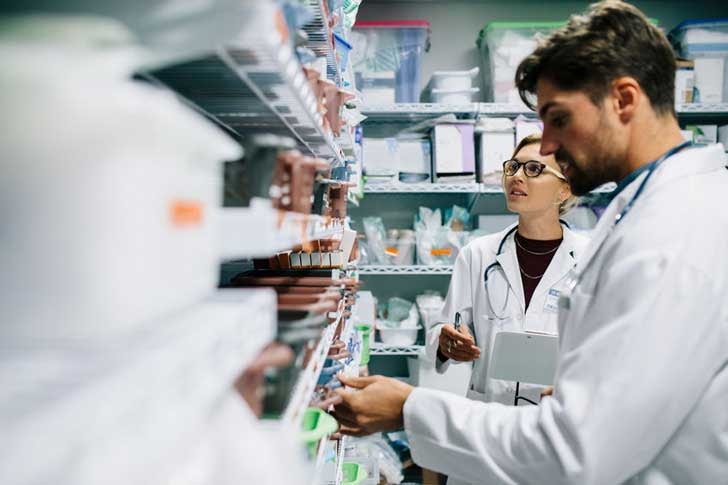
Ruggiero is not alone in this. According to a 2017 survey published in Drug and Alcohol Dependence, 84.9% of physicians-in-training reported having received no education in cannabis in medical school or their first year in residency.
Dr. Melani Kane, the co-founder and president of the International Society of Cannabis Pharmacists, told The Cannimga that when it comes to the education pharmacy students receive, “the endocannabinoid system is not explained at all, with the rationale that it is not widely understood.”
She added that “my pharmacy school did not mention hemp-based CBD products at all, but in some schools that do mention it, they focus on the wide variability and lack of FDA oversight/approval intrinsic to dietary supplements. There is little to no education about the potential benefits or risks in terms of side effects or drug interactions.”
Why is this important?
Kane says “CBD is a chemical that is widely available in grocery stores, gas stations, and even pharmacies, and can interact with numerous medications and disease states. If a patient is using CBD, it may interfere with the effectiveness of other medications or increase the likelihood of side effects. Without proper education and understanding, patients will self-medicate with these non-prescription CBD products and at best, find no improvement in their condition, or potentially worsen their existing condition.”
These side effects run the gamut from headaches to diarrhea or drowsiness, which are not life-threatening but can be quite uncomfortable.
Nonetheless, even without substantial education in CBD and the ECS, “pharmacists are tasked with staying current with new and evolving drug therapies, and the widespread use of CBD is no exception.”
When asked how she would describe the perception of cannabis-based medications in the pharmacy world, Kane said “there is a growing demand for expert guidance for the clinical use of CBD and other cannabis-based medicines. Especially for those who have been personally affected by the seemingly never-ending opioid crisis, the world is desperate for safer alternatives. As opposed to every other medicine available on the market with the ‘one pill fits all’ approach, Cannabis-based medicines require a personalized dosing regimen via trial and error.”
What do pharmacists think about CBD?
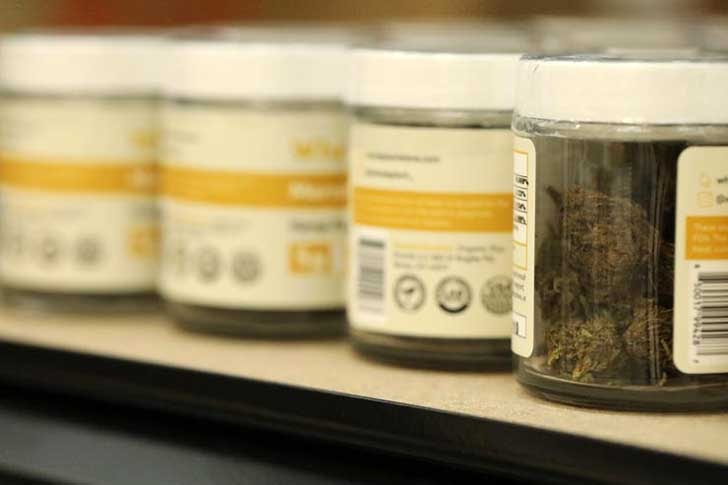
But what do pharmacists think about medicinal cannabis? A 2016 study carried out in Australia tried to tackle that question, and found that “overall the majority of pharmacists felt national legalization of a standardized form of cannabis would be suitable,” and the majority said they believed that community pharmacies would be the most suitable setting for distributing medical cannabis. The concerns voiced by the 34 pharmacists interviewed for the study included the lack of uniform national regulatory policies, safety issues (including against theft/robberies), and the stigma that surrounds cannabis use.
Dr. Joseph Morgan, a Medical Advisor to Parea BioSciences, a licensed grower processor in Pennsylvania, USA, and an expert on cannabis medicine, said that in general, “pharmacists — unless they’re really interested — don’t know a hell of a lot about CBD and the literature basically says there are very very few studies.”
Morgan said that medically-speaking, pharmacists just need to have a basic familiarity with Epidiolex — the only FDA-approved CBD medication. Epidiolex is a CBD isolate medication, used to treat rare forms of epilepsy, and contains no other compounds from the cannabis plant
Part of the issue may also be the fact that people don’t usually get CBD at a pharmacy. According to a 2019 Consumer Reports study, 40% of customers purchase CBD from dispensaries, 34% from retail stores, and 27% from online retailers, leaving not much space for pharmacists to get in the mix.
Martin A. Lee, co-founder and director of Project CBD and the author of several books, including Smoke Signals: A Social History of Marijuana–Medical, Recreational and Scientific, said that he is a bit puzzled by how a pharmacist would enter the equation in states like California where there is fully legal adult-use marijuana and medical marijuana, and anyone can legally purchase CBD or other cannabis products without ever having to enter a pharmacy.
But in general, Lee said when it comes to cannabis, health professionals are not leading the way, and if anything, the opposite is true.
“I’m not sure if the health profession is really leading the way. I don’t think it’s exactly the caboose, but it’s definitely not pioneering. You have your exceptional doctors, but, overall they’re sort of being dragged along with this whole thing.”
Nevertheless, more pharmacists are entering the cannabis space, either working directly with dispensaries or as consultants, or simply educating themselves so that they can help mitigate risks and improve outcomes by providing sound advice to patients unfamiliar with cannabis. At this time, however, it seems as though the patients are taking the leading role and pharmacists still have some catching up to do.
Sign up for bi-weekly updates, packed full of cannabis education, recipes, and tips. Your inbox will love it.

 Shop
Shop Support
Support
